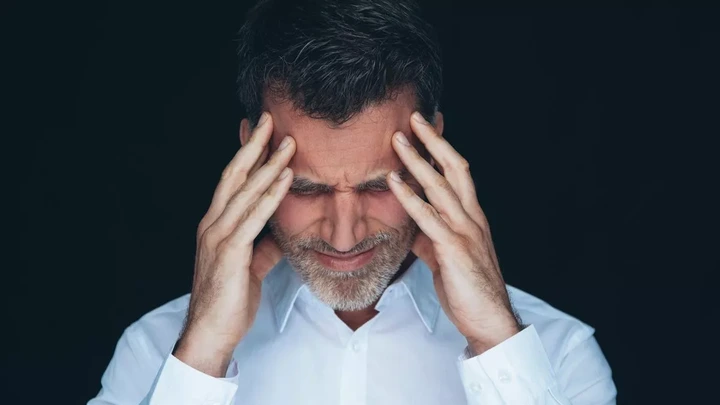It might seem manageable to push through when you're dealing with a headache, but it could indicate a more serious issue.

View pictures in App save up to 80% data.
Many individuals have experienced a throbbing headache at some point. In most situations, these headaches are bothersome yet generally benign, particularly when dehydration is the cause. Nevertheless, they can occasionally indicate a more serious underlying issue.
Nicholas Johnson MD said that it's not easy to tell the difference between an ordinary and dangerous headache, according to Allina Health. However, it's very important that persistent or serious symptoms are not simply brushed off.
Dr. Johnson outlines several serious conditions that may begin with a seemingly simple headache. These include:
- Hemorrhagic (bleeding) stroke: When a blood vessel in your brain breaks and bleeds.
- Transient ischemic attack (TIA; also called a mini-stroke): TIA symptoms are less severe and don’t last as long as a regular stroke.
- Aneurysm: A bulge or ballooning blood vessel in the brain.
- Meningitis: A bacterial or viral infection that causes swelling in the protective lining of your brain.
- Brain tumour: A “primary” brain tumour begins in the brain and can be cancerous or non-cancerous.
According to the NHS, headaches can last 30 minutes, several hours or sometimes several days. Some common headache causes can be reversed without medical intervention.
There are cases you'll want to get an urgent GP appointment or head straight to A&E. If you develop a headache with no history of a similar headache, it could be a sign of something seriously wrong.

View pictures in App save up to 80% data.
Be mindful of these seven warning signs or symptoms, and if you experience any of them, it is important to consult a healthcare professional. They include:
- It comes on suddenly (less than five minutes to maximum pain)
- It is the worst headache of your life
- You take a blood thinner
- You have problems with your immune system - such as diabetes, HIV or are being treated with steroids or chemotherapy
- You have arm or leg numbness or weakness, slurred speech, seizures or other neurological symptoms
- You have pain in the back of your head or pain that travels down your neck
- You are older than 50

View pictures in App save up to 80% data.
There is a key difference between a migraine and a common headache. You'll be able to tell the difference as a migraine tends to be "a very bad headache with a throbbing pain on one side of the head".
According to the NHS, migraines typically last from two hours to three days. While some individuals experience migraines multiple times a week, others may only have them infrequently.
Many individuals experience migraines in the lead-up to or during their menstrual cycle, which are referred to as menstrual migraines. Typically, people notice that their migraines tend to improve gradually as they age.










